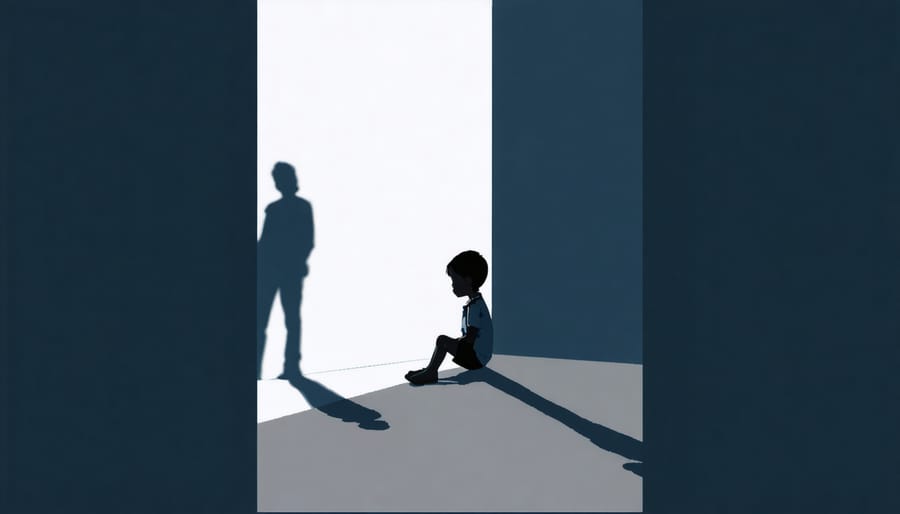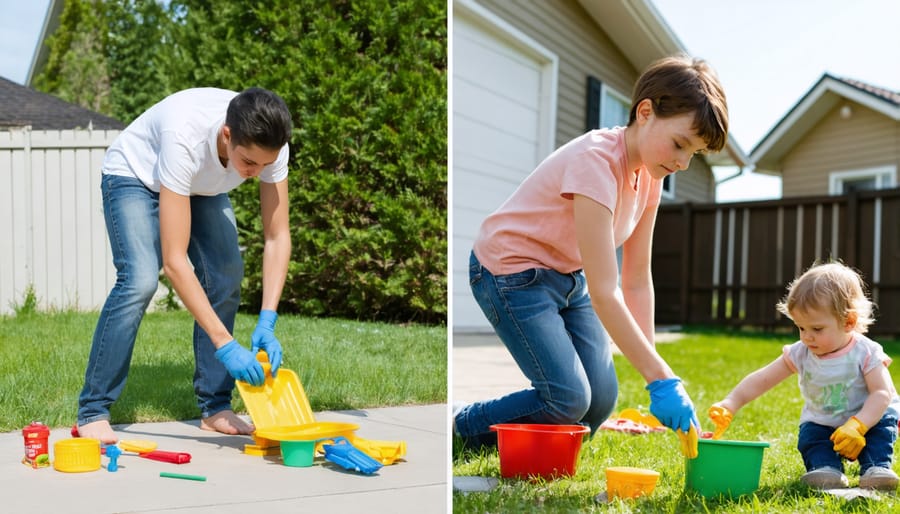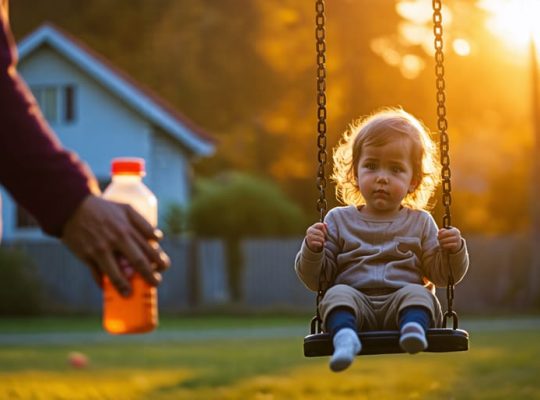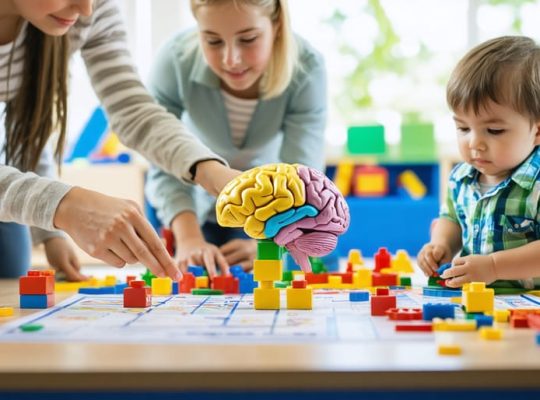Substance abuse sends shockwaves through families, affecting every member in profound and lasting ways. For children impacted by parental substance use, the effects can shape their emotional development, mental health, and future relationships. Each day, countless families navigate the complex maze of addiction, facing challenges that range from financial instability and emotional trauma to broken trust and disrupted routines.
Yet understanding these impacts is the first crucial step toward healing. Whether you’re a parent seeking help, a family member supporting loved ones, or a professional working with affected families, recognizing how substance abuse reshapes family dynamics empowers us to break destructive cycles and build healthier futures. The ripple effects touch everything from daily household functioning to long-term psychological well-being, creating challenges that require both immediate attention and sustained support.
This article explores how substance abuse transforms family life, offering insight into both the visible and hidden costs while providing hope through evidence-based solutions and support strategies. By understanding these effects, we can better protect our children, support recovery, and help families find their path to healing.
The Emotional Toll on Children

Anxiety and Depression
Children of parents struggling with substance abuse face a significantly higher risk of developing anxiety and depression in children. The emotional turbulence created by a parent’s addiction can leave lasting impressions on young minds, often manifesting as persistent worry, sadness, and feelings of uncertainty about their home life.
Dr. Sarah Martinez, a child psychologist specializing in trauma, shares: “These children often carry an enormous emotional burden. They might worry constantly about their parent’s safety, feel responsible for their parent’s behavior, or experience shame about their home situation.”
Many children in these circumstances develop coping mechanisms that, while protective in the short term, can contribute to long-term mental health challenges. They might become hypervigilant, always watching for signs of their parent’s substance use, or withdraw socially to hide their family situation from others.
The unpredictability of living with a parent struggling with addiction can disrupt a child’s sense of security and self-worth. Simple daily routines, which typically provide stability for children, might become inconsistent, leading to increased stress and anxiety. This emotional strain often continues into adolescence and adulthood if left unaddressed.
Trust and Attachment Issues
Children growing up in homes affected by substance abuse often struggle to develop healthy relationships and trust in others. When parents are inconsistent in their care and emotional availability due to substance use, children may develop what psychologists call “insecure attachment patterns.”
Dr. Sarah Chen, a child psychologist specializing in trauma, explains: “These children learn early on that they can’t consistently rely on their caregivers. This uncertainty creates deep-seated trust issues that can follow them into adulthood.”
The impact typically manifests in various ways. Some children become overly clingy and anxious about relationships, constantly fearing abandonment. Others may withdraw emotionally, building walls to protect themselves from potential hurt. Many struggle with forming close friendships or maintaining healthy romantic relationships later in life.
“My dad’s drinking meant I never knew which version of him I’d get,” shares Maria, now a parent herself. “Some days he was loving, others he wasn’t there at all. It took years of therapy to learn how to trust others.”
Understanding these attachment challenges is crucial for breaking the cycle. With proper support and intervention, children can develop healthier relationship patterns and rebuild their capacity for trust.
Behavioral Changes and Coping Mechanisms
Acting Out vs. Withdrawing
Children in families affected by substance abuse often display two distinct behavioral patterns: acting out or withdrawing. Some children may become disruptive, aggressive, or defiant as a way to express their emotional turmoil and attract attention. These “acting out” behaviors might include frequent outbursts, fighting with peers, or refusing to follow rules at home and school.
On the other hand, some children cope by withdrawing from social interactions and becoming increasingly isolated. They might become unusually quiet, avoid friends, or lose interest in activities they once enjoyed. These children often try to make themselves “invisible” to avoid drawing attention to their family situation.
Dr. Sarah Martinez, a child psychologist specializing in trauma, explains: “These behavioral responses are actually survival mechanisms. Children are trying to either gain control of their environment or protect themselves from further emotional pain.”
Parents, teachers, and caregivers should watch for sudden changes in behavior, as these can be important indicators that a child needs support. Warning signs may include:
– Dramatic mood swings
– Declining academic performance
– Changes in sleeping or eating patterns
– Loss of interest in hobbies
– Difficulty maintaining friendships
– Increased anxiety or depression symptoms
Early recognition of these behavioral changes is crucial for providing appropriate support and intervention, helping children develop healthier coping mechanisms as they navigate their challenging family circumstances.
Taking on Adult Roles
When substance abuse takes hold in a family, children often find themselves stepping into adult roles prematurely – a phenomenon known as parentification. These young individuals might become responsible for cooking meals, caring for younger siblings, managing household finances, or even emotionally supporting their parents.
Sarah, a family therapist with 15 years of experience working with affected families, shares: “I’ve seen countless children who’ve had to grow up too fast. They become mini-adults, carrying burdens that no child should have to bear.”
This role reversal can have profound effects on a child’s development. While these children might appear mature and capable on the surface, they often miss out on crucial childhood experiences and opportunities for normal social development. They may struggle with maintaining boundaries in relationships, experience chronic anxiety, or feel overwhelming responsibility for others’ well-being.
Many children in these situations develop a heightened sense of vigilance, always watching for signs of trouble or preparing for the next crisis. This constant state of alertness can lead to difficulties concentrating in school, forming friendships, or simply enjoying age-appropriate activities.
It’s important to recognize these signs early and seek professional support. With proper intervention, children can begin to reclaim their childhood and develop healthier coping mechanisms while maintaining their natural empathy and resilience.

The Cycle of Substance Use
One of the most concerning aspects of parental substance abuse is its potential to create an intergenerational pattern of addiction. Children who grow up in homes affected by substance abuse are significantly more likely to develop similar struggles later in life, but understanding this relationship is crucial for breaking the cycle of substance abuse.
Dr. Sarah Martinez, a family therapist specializing in addiction, shares, “Children learn by example, and their early experiences shape their understanding of normal behavior. When substance use is normalized at home, it can influence their future choices and coping mechanisms.”
Several factors contribute to this cycle:
Environmental exposure: Children witness substance use as a way to handle stress, celebrate, or cope with emotions, potentially viewing it as a normal part of adult life.
Genetic predisposition: Research suggests that genetic factors can increase vulnerability to addiction, though this doesn’t guarantee future substance abuse.
Emotional impact: The trauma and stress of growing up with parental substance abuse may lead to using substances as a coping mechanism later in life.
Social learning: Children might adopt similar behavioral patterns they observed in their parents, even if they initially opposed such behaviors.
However, it’s important to remember that this cycle isn’t inevitable. Many children from homes affected by substance abuse grow up to lead healthy lives free from addiction. Key protective factors include:
– Strong support systems outside the home
– Open communication about substance abuse risks
– Development of healthy coping mechanisms
– Early intervention and counseling
– Positive role models and mentors
Understanding these patterns helps families and professionals intervene effectively and provide the right support for children at risk.
Breaking the Pattern: Prevention and Support
Building Resilience
Building resilience in children affected by family substance abuse is crucial for their long-term well-being. Research shows that children can develop protective factors that help them cope with challenging family situations and reduce their risk of future problems, including preventing substance use in their own lives.
One essential protective factor is maintaining stable, supportive relationships with caring adults. This could be a teacher, counselor, coach, or trusted family member who provides consistent emotional support and guidance. These relationships help children feel secure and valued, even when their home life is unpredictable.
Encouraging participation in positive activities, such as sports, arts, or community service, can help build self-esteem and create healthy social connections. These activities provide structure, purpose, and opportunities for success outside the family environment.
Teaching emotional awareness and coping skills is another vital component. Children can learn to identify and express their feelings safely, using techniques like journaling, art therapy, or mindfulness exercises. These tools help them process difficult emotions and develop healthy stress management strategies.
Creating routines and maintaining boundaries also helps children feel more secure. Regular mealtimes, homework schedules, and bedtime rituals provide predictability that may be lacking at home. Additionally, connecting with support groups designed for children of substance-using parents can help them understand they’re not alone in their experiences.

Finding Help
If you’re affected by a family member’s substance abuse, remember that help is available and recovery is possible. Many organizations offer support specifically designed for families dealing with addiction. Your first step might be to contact a family counselor who specializes in substance abuse or reach out to local support groups.
Organizations like Al-Anon and Nar-Anon offer free support groups for family members of individuals struggling with addiction. These groups provide a safe space to share experiences and learn coping strategies from others in similar situations. For children affected by parental substance abuse, Alateen groups offer age-appropriate support and understanding.
Professional help is also crucial. Family therapists can help rebuild trust, improve communication, and develop healthy boundaries. Many treatment centers offer family programs that include education about addiction and recovery alongside counseling services.
Consider reaching out to:
– Your family doctor or healthcare provider
– Local mental health clinics
– School counselors (for children)
– Community addiction services
– Crisis helplines available 24/7
Remember to take care of yourself while supporting your loved one. Join a support group, maintain connections with trusted friends, and don’t hesitate to seek individual counseling. Many communities also offer respite care services, allowing caregivers to take necessary breaks.
The journey to recovery affects the whole family, but with proper support and resources, healing is possible for everyone involved.
Supporting Your Child Through Recovery
Supporting your child during recovery requires patience, understanding, and consistent effort. Remember that healing takes time, and rebuilding trust is a gradual process. Start by maintaining open communication with your child, creating a safe space where they feel comfortable expressing their feelings without judgment.
Establish a consistent daily routine that provides stability and security. This might include regular mealtimes, homework sessions, and family activities. Children thrive on predictability, especially when recovering from the chaos that often accompanies substance abuse.
Focus on rebuilding emotional bonds through quality time together. Simple activities like reading stories, playing games, or taking walks can help strengthen your connection. Show your commitment to recovery by attending family therapy sessions and involving your child in age-appropriate discussions about healing and growth.
Acknowledge your past mistakes honestly but avoid dwelling on guilt. Instead, demonstrate positive changes through actions. Be reliable in keeping promises and showing up for important moments in your child’s life. This helps rebuild trust naturally over time.
Remember to take care of yourself during this process. Seek support from recovery groups, counselors, or other parents who understand your journey. Your well-being directly affects your ability to support your child effectively.
Celebrate small victories and progress together. Whether it’s maintaining sobriety milestones or seeing improvements in your child’s emotional well-being, recognizing positive changes reinforces the healing journey and strengthens family bonds.
While substance abuse can have devastating effects on families, it’s important to remember that healing and recovery are possible. Families affected by addiction can rebuild trust, strengthen relationships, and create healthier environments for all members, especially children. Through professional support, counseling, and community resources, many families have successfully navigated the challenges of substance abuse and emerged stronger.
Remember that seeking help is a sign of strength, not weakness. Support groups, family therapy, and educational programs can provide the tools and understanding needed to cope with addiction’s impact. Children, in particular, show remarkable resilience when given appropriate support and guidance.
If your family is struggling with substance abuse, know that you’re not alone. Millions of families have walked this path before, and many have found their way to recovery and healing. Taking the first step – whether it’s reaching out to a counselor, joining a support group, or talking to a healthcare provider – can open the door to positive change.
With commitment, support, and the right resources, families can break the cycle of addiction and create a brighter, healthier future for all generations.







